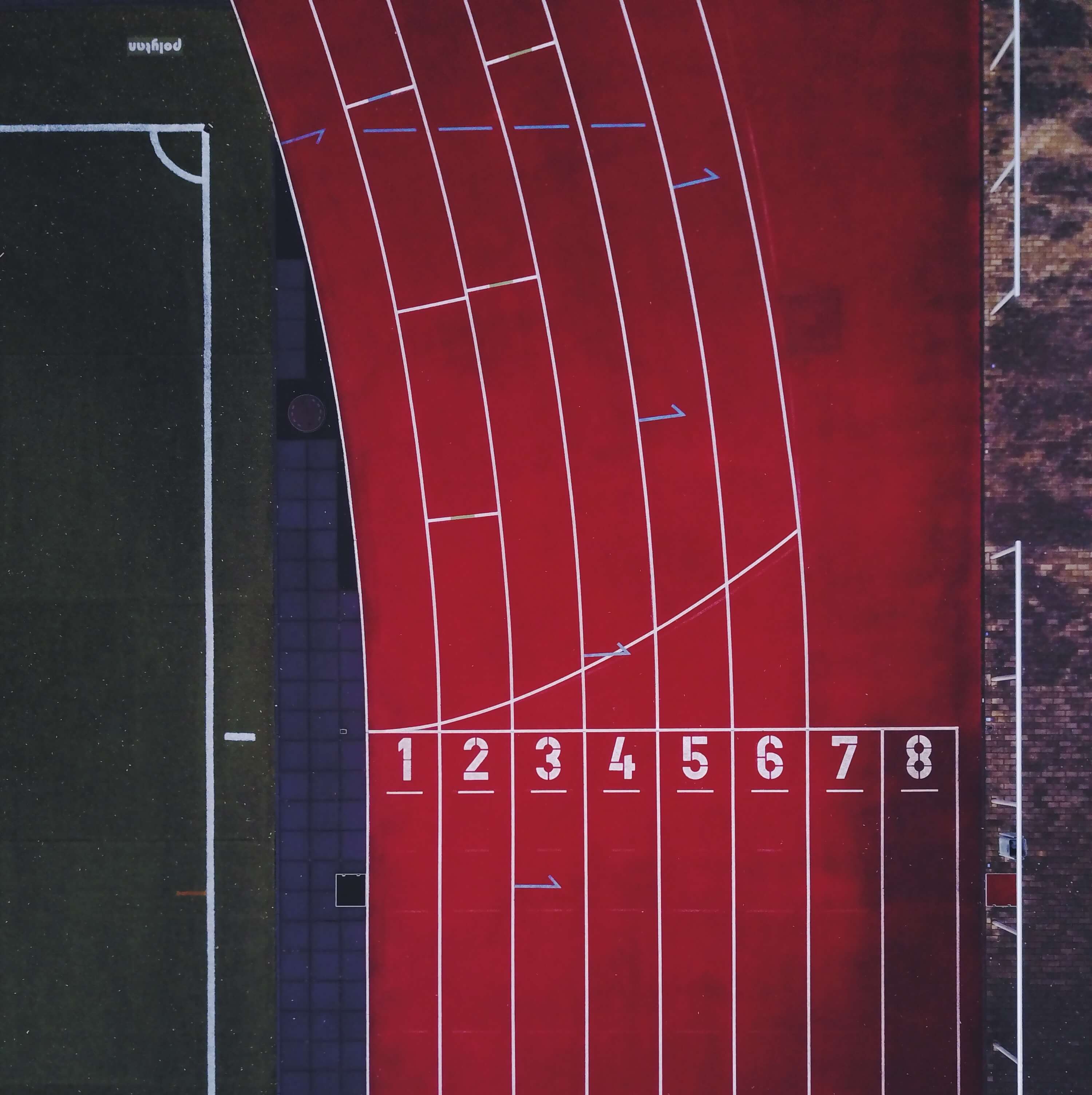Here’s Why 12 Weeks Is the Best When Training for a Half Marathon
Before the runner has that euphoric moment of crossing the finish line there is a long journey that spans past those 13.1 miles. It’s in the training that makes the body able to carry that strong spirit and focused and dedicated mind across the tape. Look up a half marathon training plan, and chances are runners will see 12-week programs. But why is 12 weeks the sweet spot for training across all levels of fitness?
If a person can run three miles, they can run a half marathon. This might seem like a big jump for someone who hasn’t run that far before, but the mileage increases over the course of the 12 weeks of training. This makes it extremely doable.
Why is a 12 Week Plan the Best?
Half marathons are the ideal distance for many runners since it pushes themselves past 5ks, yet doesn’t require as much training as a marathon. This means the runner can still have a social life and balance many different aspects of their life like work, school, family without making too many sacrifices to run.
“For most runners, I would suggest a 12-week training program for those wishing to run a half marathon,” running coach Jen Vieth (RRCA certified, ACE – GFI, NASM – PT) told Runner Click.

In general, a 12 week half marathon training plans consists of three days of short runs and one day dedicated for a long run. The long run is the most important because it builds up the stamina needed to run for long periods of time. The muscles need to get used to long distance to prevent fatigue. But just as important the physical stamina is, so is the mental aspect of these long runs. It gets the runner mentally prepared for race day. It allows them to train the mind not to give up.
Typical half marathon training programs also include at least one day to cross train to work out other muscles. This can include other types of cardio or strength training. It also includes up to two rest days. These days are just as important to prevent overuse and give muscles the rest their need to perform.
“However, as with every hard rule, there are exceptions,” Vieth added. “Those runners that don’t have the base mileage yet would need more time to slowly build to the 13.1 miles. And those that have already been logging longer runs may succeed with less weeks to train.”
With that said, generally, if the runner runs three to five times a week, 12 weeks is just the right amount of time to prepare. “To reference those that already have a hearty base of mileage, I would agree to the 12-week protocol,” Vieth said.”This allows ample time for the body to slowly adjust to the training load.”
Why Train Anyway?
Runners really can’t just wing it when it comes to half marathons. Of course, there are exceptions to the rules. There are countless stories of average people signing up and completing their race without any serious training. There are also athletes who train in different ways or are in great shape that are able to tackle the course with no to minimal training.
But training for the big race is extremely important. And this applies to both beginners and those who have been running for awhile, as well as long-distance runners.

Training prevents the risk of injuries that can occur while running. Since the miles are packed on gradually, the body has time to “get used to” the distance. And since 13.1 miles is much less than 26.2, there is a lower risk overuse and overtraining that can sometimes occur during marathon training.
Half marathon training also makes the runners feel confident on race day. They know they put in the work and can trust the training, no matter how nervous they are. If doubt creeps in, they know they ran 10 miles. What is another 3.1 more?
Beginners Training vs Established Runners
Training 12 weeks for a half marathon is beneficial for both beginners and seasoned runners.
For beginners, it allows them enough time to work up the miles a little more each week. The program might start with three to four miles during the week and up to five miles for the long run at first. Over time, those long runs become longer. Many 12 weeks half marathon plans like those provided by Hal Higdon only have the runner going up to 10 miles before race day.
“Most programs call for two to three weeks of a mileage increase, then a one-week dropback recovery of mileage,” Viet said. “The main mission is to load the body with miles, then allow a drop of miles for rest.”
For more established runners, training for 12 weeks is still the best amount of time to get ready for the big day. However, this time the runner who has maybe done a half before or used to long distance can focus more on their speed. They know they can run the distance, now they can try to reduce their time it takes to complete the course.
This includes days where the runner is expected to run their 5k pace. Intermediate plans also include more speed work like interval training and fartlek runs. There is still one day dedicated for the long run.
Stick to the Plan

Sometimes life gets in the way of plans to run, but make sure to stick to the training schedule as much as possible. Never skip a long run, while it’s more forgivable to sit out a cross training or a two-mile run. It’s also okay to switch the days of the week for the planned run, so make adjustments accordingly.
Stick to the 12-week plan and time will fly by before the runner is crossing that finish line.
Sources
- , How Much Training Do You Need to Run a Half Marathon?, Running Website
- , Why Half Marathons Are the Best Distance Ever, Health Website
- , Why the Long Run Is Your Most Important Training Run, Running Website
- , Top 10 Health Benefits of Running a Half Marathon, Health Wesbite
- , What’s the Best Long Run Training Distance for Half Marathon Runners?, Running Website
- , Half Marathon Training : Novice 1, Running Website
- , Half Marathon Training : Intermediate 1, Running Website
Latest Articles
 Is Running on a Treadmill Easier Than Running Outside?Runners have their own preferences, whether it is treadmill running, running outside on the road, or exploring trails. So...
Is Running on a Treadmill Easier Than Running Outside?Runners have their own preferences, whether it is treadmill running, running outside on the road, or exploring trails. So... Is It OK to Use Trail Running Shoes on the Road?While trail running shoes can be used on roads, especially in situations where a runner encounters mixed terrains or pref...
Is It OK to Use Trail Running Shoes on the Road?While trail running shoes can be used on roads, especially in situations where a runner encounters mixed terrains or pref... How to Fix Sore Quads After Running?Rest, ice, gentle stretching, and over-the-counter pain relievers can help soothe sore quads after running. Also, ensure ...
How to Fix Sore Quads After Running?Rest, ice, gentle stretching, and over-the-counter pain relievers can help soothe sore quads after running. Also, ensure ... 10 Fruits With The Most Electrolytes to Replace Sports DrinksThese fruits are high in electrolytes such as potassium, magnesium, and calcium, essential for hydration, muscle function...
10 Fruits With The Most Electrolytes to Replace Sports DrinksThese fruits are high in electrolytes such as potassium, magnesium, and calcium, essential for hydration, muscle function...

